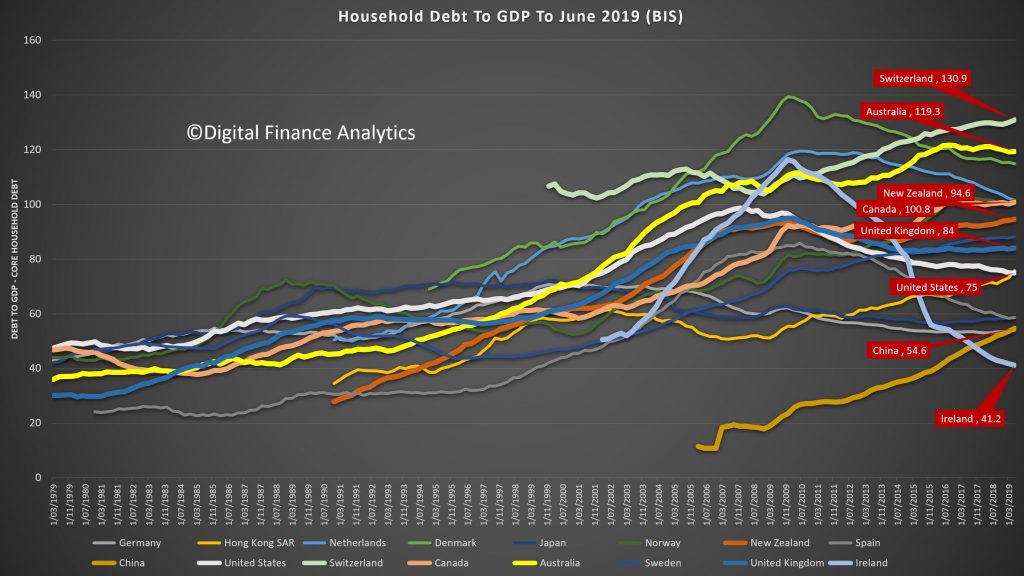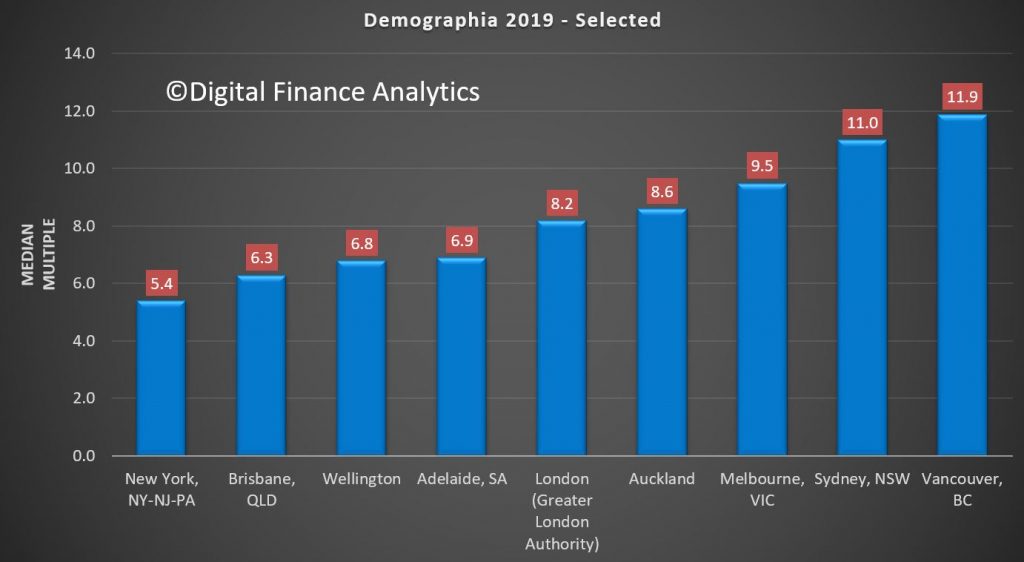Despite the recent influx of positive reporting on the trajectory of the housing market, there remains “a fundamental, structural problem” with the price of property in Australia, according to financial analyst Martin North. Via Australian Broker.
While the rising home values evidenced from mid-2019 have been largely celebrated as an overtly positive trend, North has his doubts.
“It’s not sensible to hope and assume prices will continue to go ever higher. House prices are very high relative to income. Actually, very high relative to any other measure you can name, like GDP,” he said.

A recently-released Demographia survey showed Australia has some of the most unaffordable property in the world. While Hong King and Vancouver claimed the top two spots on the list, Sydney and Melbourne came right after.

“Further, we’ve got too much debt in our system, which is supported by debt that’s difficult to repay, even at low interest rates,” said North.
“There is definitely a cap, in my view, on how much home price growth we should expect and will see.”
The affordability concerns which have dominated Australia for years were again thrown into sharp relief by recent figures around hopeful market entrants.
“The latest data shows the first home buyer average loan is now $408,000 across Australia – the highest it’s ever been,” said North.
“That’s massive for a first-time buyer trying to get into the market. Think about the income multiples that figure represents; that’s maybe eight, nine, 10 times what many people make.
“It’s an unsustainable position to be in. We can’t allow home prices to continue to run away. It will create a bigger problem for us later.”
It’s important to focus on the hard data amidst the sea of vested parties doubling down on their own rhetoric, North said.
“The banks want property prices to go higher because if they go lower, they have much more risk in their system and on their books than they want to admit,” he explained.
“The Reserve Bank and Treasury both want prices to rise to create the wealth effect. If people feel more wealthy, which they generally do as prices rise, they go and spend more. Trying to bring prices higher is really the only lever they’ve got.”
However, according to North, it’s “failed policy” to bank the future of the economy on “ever-inflated house prices” with nothing else to support it.
“I come back to the fundamental reality of the ratio between debt and income, the ratio between debt and GDP,” he said.
“We’re in an unsustainable position. We’re betting the farm on the property sector and, in my view, it’s going to fall over at some point; it’s just a question of how soon.”
